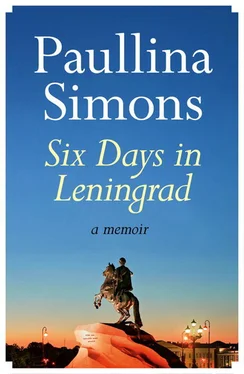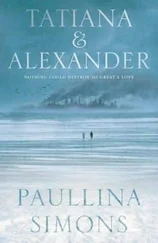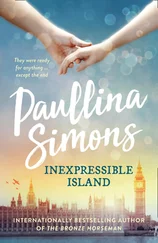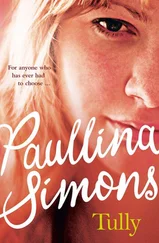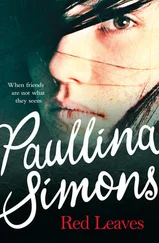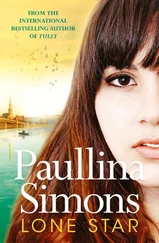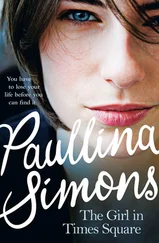Maybe if I burned wood and smoked some fish and grew nettles in my backyard and got a tub full of warm water that would slowly evaporate, maybe I could sit in an old wicker chair by the tub and breath in the air and recreate Shepelevo right in Texas.
But I still had a life, and I had to continue living it because it was the only life I had.
I thought about Anatoly. What if he had looked at his own life and found it wanting? What could he do about it?
In America, we could do something. We could move, get a new job, divorce the skunk, have another baby, or we could just shake our heads and call in that Prozac prescription at Rite-Aid before our psychotherapy session on Friday.
In Russia, Anatoly could find his life to be unsatisfactory on every level that defines success in a man’s life, yet he could not get another job. He could not moonlight, could not declare bankruptcy. There was no room for another baby, which is why most Soviet couples only have just the one. And even if he wanted to get divorced, he and Ellie would have to continue to live in the same apartment because there was nowhere else to move.
There was nothing else but the life he had, and after a while, after a whole lifetime of having nothing else, many of us might look like Anatoly, the lines in our faces etched out by grim determination to face his days unexamined.
There but for the grace of God go I. That life would have been mine, too, and I would have lived it and shrugged my shoulders just like they do, and gone on and put out my china and crystal when the guests came, and every shrug of my shoulders meant another gray hair, another line in my face.
That’s how I felt inside. On the outside, I was in my glorious spacious home, seven square meters times sixty-six. A home in which there are five and a half working, gleaming white indoor toilets, and five bedrooms, one for Radik and Lida, one for Yulia and her baby, one for Anatoly and Ellie, one for Alla and Viktor, and one for me and my family. I can’t believe I’m saying that, me the communal apartment critic. I guess you can take the girl out of the Soviet Union but you can’t take the Soviet Union out of the girl.
Inside, I hunched my shoulders and held my breath as I walked into the bathroom at Fifth Soviet that had not been cleaned in years and never would be, and as I squatted down, I knew I was squatting in my old life. Outside I was in America, but inside I was in Russia. Who said memory is kind? Memory is merciless. My father was right. “All the things you want to remember, Paullina, I want to forget,” he said to me as he stood smoking outside Fifth Soviet.
Faulkner was right. The past is never over, he said. It’s not even the past.
When would the Good Witch Glinda be right?
Would she ever be right?
When we were in Russia, sometimes I would catch my father smoking and I wanted to smoke too, I wanted to start, to relieve the aching, to soothe my soul, to smoke and see him again as I remembered him when I had been so small and he was taken away from me.
We moved to America. He made that happen for us. It was worth it. I was going to be all right in the end, as long as I could somehow stop myself from thinking of the life that would have surely been mine had we stayed behind, had he not learned English in the Gulag to get us out.
Why can’t I just say, so what? So what, it’s not my life. I don’t care.
Yes, they stayed. But we didn’t stay.
It’s not my life. I don’t care.
But the soldiers smoked it in the walls and burned it in the ashes, and died consecrating the earth on which we walk.
Did they die so we could have the Fifth Soviet life? The Ulitsa Dybenko life? Are the bones of their bodies and the metal from the bullets that killed them lying in the ground for fifty years so that we could have a life of daily privation, a life of no hope?
Twenty million Russian soldiers and civilians dead, and today everyone can say, and does, I had an uncle, a brother, a father, a beloved boy who died, was shot down, blown up, starved to death, got pneumonia in evacuation. Every family is touched by grief. Multiply that by a geometric factor of the incomparable propensity of the Russian man to drink and suffer to suffer and drink, and what you’ve got is a nation of bereaved alcoholic failed poets.
Drinking was a languid vice I could ill afford. I was a mom, I had kids to take care of, I had a house to run and dinner to make every night for five starving creatures.
So I did what we all do to give ourselves relief, to keep ourselves from going mad. I took my unresolved feelings and opened a drawer in my desk and I put them inside and I closed the drawer, and then I left the room.
The best thing for me, really, putting the elephant that was Russia into a drawer in my desk and opening it only when I didn’t have too much to do.
Thank God I had too much to do.
Two weeks after I returned home from Leningrad, we flew out to New York in August to visit our families. My grandmother was turning 87. My father had retired from Radio Liberty at the end of July and was making a pit stop in New York on the way to Maui to begin a new life with my mother, who, despite her health, also came to visit for a week. We all gathered together in our family home on Long Island.
“So how was your trip?” asked my 20-year-old sister Liza.
“Fine,” I said. “What can I say, Liz… It was…”
“Why won’t you tell me about it?” she said impatiently. “Papa did.”
“Oh yeah?” I said. “What did he say?”
“He said it was the best trip of his life.”
“He said that?”
“Was it?”
“He said that?”
“Yes. Was it?”
“It was a good trip,” I said.
When I came inside the house and saw my father, I did feel that there was now something new between us, and only us. As if there wasn’t enough there before.
My mother slowly came down the stairs to greet us. I put on my best smile. “Hey, Mama! How are you feeling?”
“As if you care,” she said as she walked past me to hug my kids.
A little later, before dinner, I tried again. “So, Mama, how are you feeling? You look good.”
“How I look is no indication of how I’m feeling. I feel terrible. Absolutely awful. I was dying all alone in the hospital while you and your dearest father were gallivanting all over Leningrad.”
I was eager to show my grandparents my six hundred photos. After all, at 91 and 87, they would never see Leningrad again. “I can’t wait to see the picture of Lebed!” my grandfather said. “I’m really interested in him.”
Not understanding for a moment, I said, “Who? Oh. Deda, I don’t have a picture of Lebed.”
His face showed acute disappointment.
“You mean at the Romanov funeral? No, I couldn’t get him. He was hidden by other people.”
“Oh.” My grandfather looked so dejected.
“But I have other pictures!” I said brightly.
“Oh?” he said, but I could tell nothing else really interested him. He looked through them but didn’t become enthusiastic about anything else.
I sat with my grandparents at our kitchen table while we leafed through my two albums. “Deda, Baba, look — our lake in Shepelevo; it’s called Gora-Valdaisko.”
“How were the Likhobabins?” asked my grandfather. “Vasili Ilyich, how was he? Did you ask Yulia why she doesn’t go to the dacha anymore?”
“No, I didn’t ask her.”
Before I could say another word, my grandmother busted in with, “We talked to Yulia, you know.” She stared at me with stern disapproval. “Why didn’t you go visit her when you were in Russia? You had time for Schlisselburg. But no time for Yulia?”
“Babushka, please,” I said weakly. “Let’s just look at the pictures.”
Читать дальше
